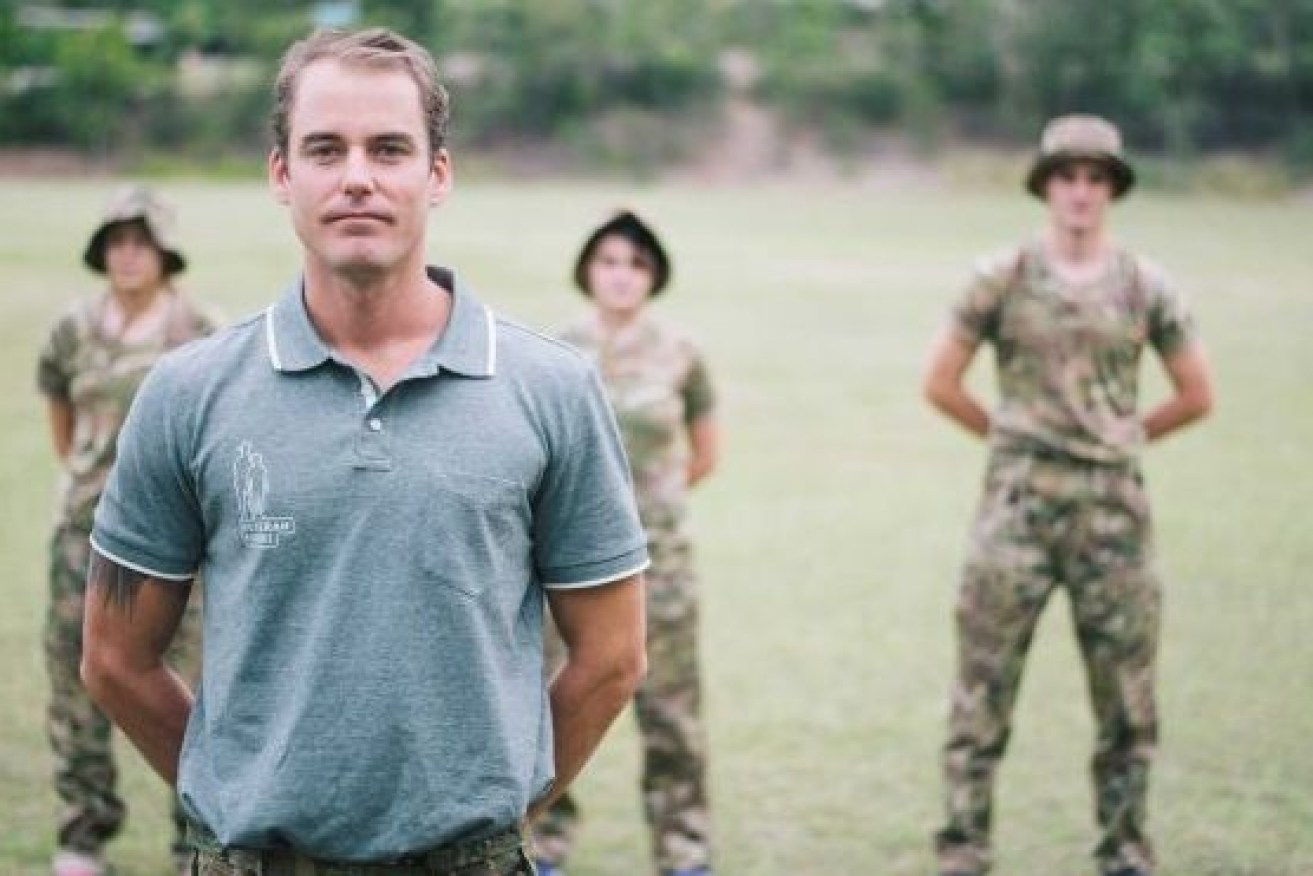Our favourite day – veterans prepare for a very different celebration of ANZAC
Troy Methorst was to attend a 10-year reunion of his combat team in Afghanistan this Anzac Day. Like many vets, he says it’s about more than a parade.

Former Army combat engineer Troy Methorst says Anzac Day is usually one of the best days of the year. Photo: ABC
As Australia prepares to mark an Anzac Day unlike any other, our veterans are facing the challenge of physical separation during a time that is traditionally more about unity.
Some fear for how their mates in isolation will cope with the flashbacks commemorations bring.
Others are embracing the opportunity for quiet contemplation.
All have an individual take on just what the day means, shaped by their own combat history and the people with whom they shared that experience.
Favourite day of the year
Anzac Day this year was supposed to mark a 10-year reunion for Troy Methorst and members of his combat team who served in Afghanistan from 2010–2011.
They were planning to converge on Canberra and had organised a number of events — until COVID-19 restrictions came into play.
“It is a moment in time when you reflect on your military service and for me personally it is a time when I really love to meet up with other veterans,” Mr Methorst said.
“Speaking for myself and having talked to a few of my mates about it, Anzac Day is almost our favourite day of the year.
“Christmas is cool, but Anzac Day when we get together and share stories is really, really cool. So it is going to be tough this year without having that physical connection of being somewhere with your friends.”
Now a director of Gold Coast bootcamp company Veteran Mentors, Mr Methorst has maintained strong connections to returned servicemen and servicewomen.
“It will be really interesting to see how it goes because it is an unknown,” he said.
“I have definitely noticed in myself that there are some sad feelings and things, so I am really feeling for the guys who might not be reaching out or just trying to fight through by themselves.”
A healing experience
The significance of Anzac Day has evolved over the past 52 years for John Guy, 73, who was an SAS forward scout in the jungles of Vietnam in 1967.
As a 19 year-old, he says he “grew up in a hurry” during his stint in Phuoc Tuy, but it was the hostility he faced upon his return to Australia that took a lasting toll.
“People recently have been asking how do you handle isolation,” he said.
“I say I have handled isolation for years because as a Vietnam veteran you were not ‘Mr Popular’ when you came home.”
After 20 years in the Army, Mr Guy and his wife Micheline relocated from Adelaide to a property deep in the south-east Queensland bush, where he threw himself into running camps for disadvantaged youth.
“I missed a lot of Anzac Days, I was dealing with a lot of anger from troubled youth and felt I didn’t need to march around getting abused for being a Vietnam veteran as well,” he said.
“After a while one of my Army mates said it was time for me to march … I went and as we turned into the main street I saw all these people with signs saying ‘Thank you Vietnam veterans’.
“It was totally unexpected and I wept.
“As a healing experience it was enormous, it healed all that rejection we had had for years.”
Respecting the commitment
There is a nearly 2-metre-tall steel silhouette of a soldier standing in Sarah Sliwka’s backyard — something special she has organised for commemorations this year.
“I had it made and have put it up in the backyard facing out into the bush and my partner and I are going to get out in the morning and do our own little service,” she said.
Ms Sliwka, who is now Brisbane-based, was a linesman in the Australian Army Signals Corp for four years until 2006, specialising in linking domestic field communications.
“I didn’t serve overseas so for me [Anzac Day] is about paying respects to people who have, but also to people who have signed that dotted line no matter what,” she said.
“Not everyone can serve overseas but you are still serving your country.
“My younger brother served overseas, that’s a really big thing for me and a lot of it for me is paying respects to him and what he did for our country.”
Remembering fallen mates
On his quiet property in Tamworth, in country New South Wales, Benjamin Mortimer’s thoughts often turn to the men and women he served with in Afghanistan.
Anzac Day is usually spent with them, but this year they will link up on the phone.
“I know for a lot of them it is a difficult day emotionally and because we can’t be there face-to-face to help each other I will do it as best I can over the phone and through social media,” he said.
“One of the disappointing parts about not being able to commemorate Anzac Day as a larger veteran community is we can’t check in with the older veterans who you normally would be able to.”
Regardless of his location or circumstances, Mr Mortimer said Anzac Day had always held a heavy meaning.
“I have been going to Anzac Day services since I was 12, so basically for as long as I can remember it has been about paying respects to the men and women who have come before us and protected Australia,” he said.
“Since I served [in Afghanistan in 2013-14] it has become an opportunity to remember my mates who unfortunately didn’t come back or have taken their lives since.”
– ABC / Jennifer Huxley












